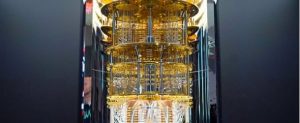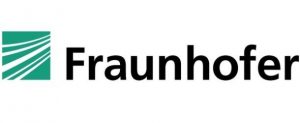Quantum News Briefs September 4: Quantum computers are not just from IBM or Google: these are startups that are fighting them; SSH Communications Security joins NIST PQC Migration Consortium; Cryogenic on-wafer prober determines quality of qubit devices for quantum computing and quantum sensing + MORE

Quantum News Briefs September 4:
Quantum computers are not just from IBM or Google: these are startups that are fighting them
 Two technological giants, IBM and Google, have embraced quantum computing as one of the areas where they want to lead in the future, but they are not alone. Quantum News Briefs summarizes a September 3 article in Reutir that discusses “. . .how a few startups specialized in quantum computing have sneaked in among these large companies. Companies with their own quantum computers where some have already left that initial phase behind and are currently listed on the stock market.”
Two technological giants, IBM and Google, have embraced quantum computing as one of the areas where they want to lead in the future, but they are not alone. Quantum News Briefs summarizes a September 3 article in Reutir that discusses “. . .how a few startups specialized in quantum computing have sneaked in among these large companies. Companies with their own quantum computers where some have already left that initial phase behind and are currently listed on the stock market.”
D-Wave: Founded in 1999; this Canadian company is recognized for having been the first company to create a quantum computer with a commercial side, far from the purely academic world. D-Wave is a company that plans income of between 11 and 13 million dollars for 2023, although with a negative EBITDA of about 58 million dollars.
IonQ: the first startup in this group to go public. IonQ bases its quantum computers on ion traps. Its founder is Chris Monroe, who worked alongside Nobel-winning physicist David Wineland in his pioneering work on controllable qubits. It previously received more than $20 million from Google Ventures and stands out for offering its quantum computers through the cloud of major services such as AWS, Azure and Google Cloud.
Quantum Computing Inc. Specialized in photonic quantum information processing, this company is listed on the Nasdaq despite its small size. They have been awarded for helping NASA monitor climate change with their quantum solutions
Atom Computing: To their credit, they have a 100-qubit computer. At the beginning of 2022 they obtained a B round of $60 million to continue their work. This summer they announced an alliance with the United States government to collaborate on the expansion of quantum technologies.
Rigetti: Former IBM employee Chad Rigetti decided to found his own company specializing in quantum chips in 2013. Since then, Rigetti has launched multiple quantum computers. With up to 84 qubits, like the recent Ankaa-1, becoming the company that is closest to rivaling the two giants. Click here to read Reutir article in-entirety.
SSH Communications Security joins NIST PQC Migration Consortium
 Leading Defensive Cybersecurity Company SSH Communications Security has become part of the US National Institute of Standards and Technology (NIST) Post-Quantum Cryptography Building Block Consortium, operated by the National Cybersecurity Center of Excellence (NCCoE), which is a collaborative hub within NIST that works with industry, government, and academia to address cybersecurity challenges. This innovative collaboration paves the way for quantum-safe solutions in the United States and beyond.
Leading Defensive Cybersecurity Company SSH Communications Security has become part of the US National Institute of Standards and Technology (NIST) Post-Quantum Cryptography Building Block Consortium, operated by the National Cybersecurity Center of Excellence (NCCoE), which is a collaborative hub within NIST that works with industry, government, and academia to address cybersecurity challenges. This innovative collaboration paves the way for quantum-safe solutions in the United States and beyond.
With a rich heritage spanning more than 28 years in encryption expertise, SSH Communications Security’s participation in the NIST PQC migration consortium marks an important milestone in its journey toward securing the digital landscape against quantum threats. SSH helps organizations safeguard their mission-critical digital assets at rest, in transit, and in use. SSH has 5,000+ customers worldwide, including 40 percent of Fortune 500 companies and major organizations in the Finance, Government, Retail, and Industrial segment.
“I am immensely proud that SSH Communications Security stands at the forefront of quantum-safe solutions, safeguarding the future of cybersecurity. Our experts are not only engaged in pioneering quantum computing-resistant solutions but are also driving the search for the most robust algorithms to ensure the security of our customers and society’s communications once again. As we join hands with the NIST PQC Migration Consortium, we embark on a journey to shape a quantum-secure world for generations to come,” finishes Teemu Tunkelo, CEO of SSH Communications Security.
The mission of the Consortium is to bring awareness to the issues involved in migrating to post-quantum algorithms and to develop practices to ease migration from current public-key algorithms to replacement algorithms. NIST does not evaluate commercial products under this Consortium and does not endorse any product or service used. Click here to read September 1 announcement in-entirety.
Cryogenic on-wafer prober determines quality of qubit devices for quantum computing and quantum sensing
 Germany’s first cryogenic measuring setup for statistical quality measurement of qubit devices on whole 200- and 300-mm wafers has started operation at Fraunhofer IAF.Quantum News Briefs summarizes August 31 Phys.org article.
Germany’s first cryogenic measuring setup for statistical quality measurement of qubit devices on whole 200- and 300-mm wafers has started operation at Fraunhofer IAF.Quantum News Briefs summarizes August 31 Phys.org article.
The on-wafer prober can characterize devices based on semiconductor quantum dots and quantum wells as well as superconductors at measurement temperatures below 2 K.
With the newly set up cryogenic on-wafer prober, researchers at the Fraunhofer Institute for Applied Solid State Physics IAF aim to better understand the functioning of quantum devices based on semiconductor quantum dots and quantum wells as well as superconductors. The device can characterize wafers in industrial sizes (200 mm and 300 mm) and high volumes (up to 25 wafers in a row) fully automatically at cryogenic temperatures below 2 K (271.15°C).
Fully automated operation will allow researchers to build up a quantitatively relevant database and advance the industrial production of high-quality devices for quantum computing and quantum sensing in Europe.
“With the on-wafer prober we gain new and unique capabilities in cryogenic characterization nationwide,” emphasizes Prof. Dr. Rüdiger Quay, KryoproPlus project coordinator and acting institute director of Fraunhofer IAF. “With this system, we will support our partners from research and industry in establishing a European supply chain for materials and production processes for solid-state qubits. This allows us to make an important contribution to the technological sovereignty of Germany and Europe,” Quay adds. Click here to read article in-entirety.
Distinguished four-star General Funk joins Infleqtion, bringing expertise in deploying technology that strengthens national security
 Infleqtion announced on August 23 that General Funk, a distinguished retired four-star general of the United States Army, has joined Infleqtion as an advisor. General Funk’s unparalleled leadership experience and strategic expertise will contribute to accelerating the application of quantum technology in real-world scenarios. General Funk’s announcement follows the recent additions of Retired United States Air Force Major General Cameron Holt, Former Army Applications Lab Executive Director, as advisors.
Infleqtion announced on August 23 that General Funk, a distinguished retired four-star general of the United States Army, has joined Infleqtion as an advisor. General Funk’s unparalleled leadership experience and strategic expertise will contribute to accelerating the application of quantum technology in real-world scenarios. General Funk’s announcement follows the recent additions of Retired United States Air Force Major General Cameron Holt, Former Army Applications Lab Executive Director, as advisors.
With an impressive military career spanning more than 35 years, General Funk served as the commanding officer of the Army Training and Doctrine Command, the 60th Commanding General of III Corps and Fort Hood, Texas, and the Commanding General of the Combined Joint Task Force – Operation Inherent Resolve. He is renowned for his ability to scale and lead large organizations through times of uncertainty.
General Funk’s multifaceted expertise includes workforce development, risk management and mitigation, strategic and operational planning, talent management, budget execution, and strategic decision-making. He oversaw talent management for an 80,000-person organization dedicated to training and education within the 1.3 million-person U.S. Army. General Funk’s expertise will help accelerate Infleqtion’s mission to deliver technology that addresses current security concerns and shapes the future of national security.
General Funk will play a vital role in spearheading Infleqtion’s expansion efforts in Texas and fortifying the company’s strategic partnerships within the region, helping to identify significant opportunities for growth and collaboration. His addition to the Infleqtion team is pivotal as the company continues to expand its capabilities and offerings. His profound understanding of the strategic and tactical requirements across the military and multiple industries will provide valuable insights that bridge the gap between innovative technology and real-world applications. Click here to read the announcement on Infleqtion’s site.
Sandra K. Helsel, Ph.D. has been researching and reporting on frontier technologies since 1990. She has her Ph.D. from the University of Arizona.



















